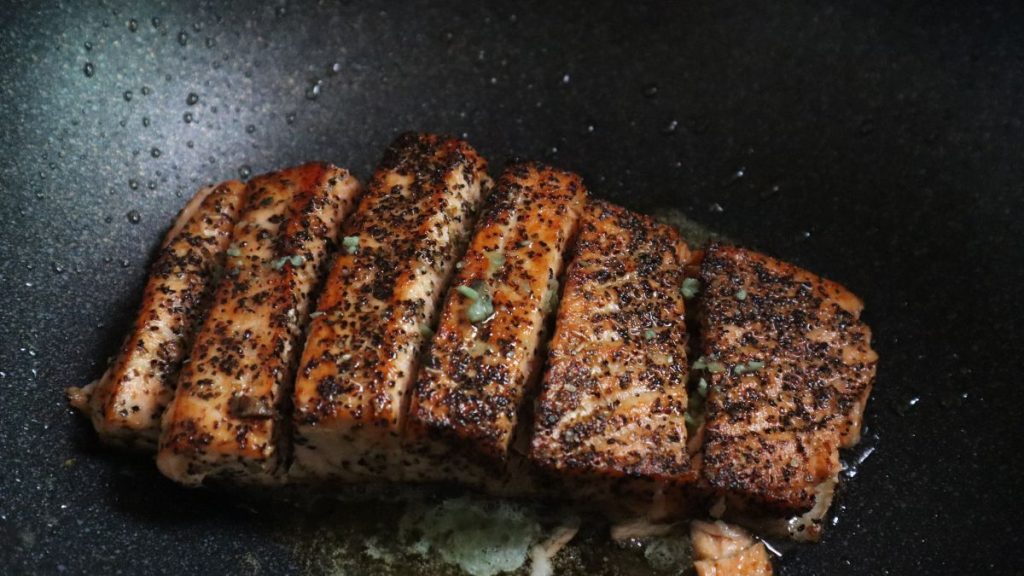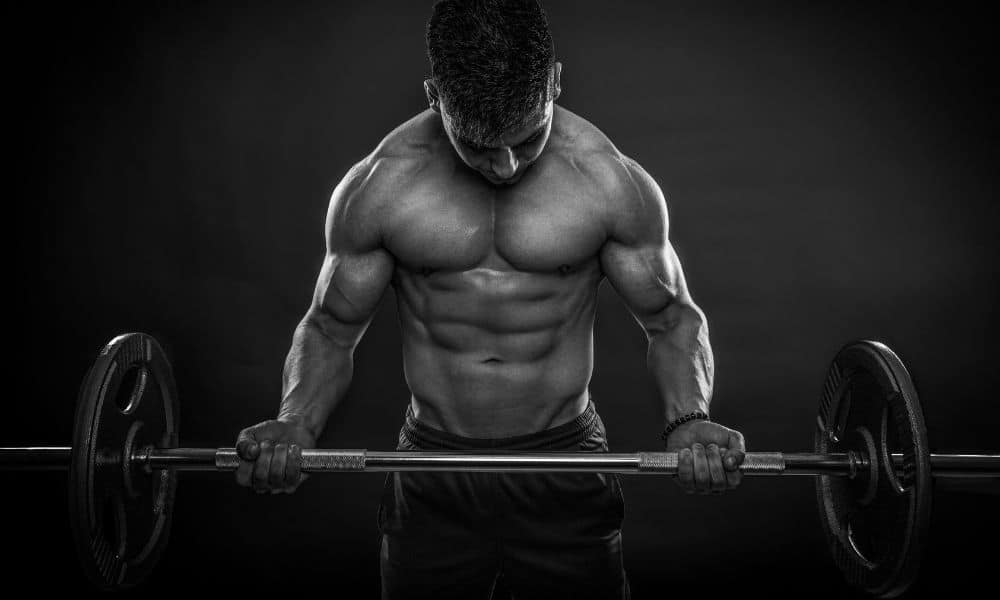Do you want to know how to use the power of protein to maximize muscle gains through nutrition and training? As an avid fitness enthusiast, I’ve always been fascinated by the role of nutrition in achieving my fitness goals. One nutrient that has consistently stood out as a cornerstone of muscle growth and development is protein. In this comprehensive guide, I’ll delve into the power of protein and how it can fuel your fitness journey for optimal muscle growth.
Protein is the building block of our muscles, and it plays a crucial role in the repair and rebuilding of muscle tissue. When we engage in strength training or other forms of exercise, our muscles experience microscopic tears. Consuming adequate amounts of protein supplements helps these muscle fibers repair and grow back stronger, leading to increased muscle mass and improved overall physical performance.
How Protein Aids in Muscle Repair and Recovery
The process of muscle growth is a complex one, but protein is the essential component that facilitates it. When we consume protein, it is broken down into smaller units called amino acids, which are then utilized by the body to repair and rebuild muscle tissue. This process not only helps to maintain and grow our existing muscle mass but also supports the recovery and regeneration of muscles after intense workouts.
By providing the necessary building blocks for muscle repair and growth, protein helps to reduce the recovery time between workouts, allowing us to train more effectively and see faster progress towards our fitness and body transformation goals. This is particularly important for individuals who engage in high-intensity exercise or strength training, as these activities can place a significant amount of stress on the muscles, necessitating a robust protein intake for optimal recovery and growth.
Different Types of Protein Sources for Muscle Growth
When it comes to building muscle, not all protein sources are created equal. There are various types of protein, each with its own unique amino acid profile and nutritional benefits. Understanding the different protein sources and their advantages can help you make informed choices to support your muscle-building efforts.
Animal-Based Protein Sources:
- Lean meats (e.g., chicken, turkey, beef, pork)
- Fish and seafood (e.g., salmon, tuna, shrimp)
- Eggs
- Dairy products (e.g., milk, cheese, yogurt)
Plant-Based Protein Sources:
- Legumes (e.g., beans, lentils, peas)
- Soy-based products (e.g., tofu, tempeh, edamame)
- Nuts and seeds (e.g., almonds, pumpkin seeds, chia seeds)
- Whole grains (e.g., quinoa, oats, brown rice)
Each type of protein source offers its own unique benefits, and incorporating a variety of protein-rich foods into your diet can help ensure that you’re getting a comprehensive range of amino acids to support muscle growth, exercise and overall health.
Recommended Daily Protein Intake for Optimal Muscle Growth
The optimal daily protein intake for muscle growth can vary depending on factors such as your age, activity level, and overall fitness goals. However, as a general guideline, the recommended daily protein intake for individuals engaged in regular strength training or muscle-building activities is:
- 1.6-2.2 grams of protein per kilogram of body weight or 0.7-1 gram of protein per pound of body weight.
For example, if you weigh 150 pounds (68 kilograms), your recommended daily protein intake would be between 95-150 grams per day.
It’s important to note that individual protein needs may vary, and it’s always best to consult with a registered dietitian or healthcare professional to determine the optimal protein intake for your specific circumstances. However, a small amount or protein is recommended during weight loss.
Protein Timing: When to Consume Protein for Maximum Benefits
The timing of protein consumption can also play a significant role in supporting muscle growth and recovery. Strategically consuming protein at specific times throughout the day can help maximize the benefits for your fitness goals.
Pre-Workout: Consuming a protein-rich snack or meal before your workout can help provide your muscles with the necessary amino acids to support muscle repair and growth during your exercise session.
Post-Workout: Consuming a protein-rich meal or supplement immediately after your workout can help kickstart the muscle recovery and rebuilding process, taking advantage of the increased muscle protein synthesis that occurs during this time.
Throughout the Day: Distributing your protein intake evenly throughout the day, rather than consuming it all in one or two meals, can help maintain a steady supply of amino acids for your muscles, supporting continuous muscle growth and repair.
By optimizing the timing of your protein intake, you can ensure that your muscles are receiving the necessary nutrients when they need them most, leading to enhanced muscle growth and improved overall fitness.
Protein Supplements for Muscle Growth
While it’s always best to obtain your protein from whole food sources, protein supplements can be a convenient and effective way to complement your dietary protein intake, especially for individuals with high protein requirements or those who struggle to meet their daily protein needs through food alone.
Some popular protein supplement options include:
- Whey Protein: Derived from milk, whey protein is a high-quality, fast-absorbing protein that is often used for post-workout recovery and muscle building.
- Casein Protein: Also derived from milk, casein protein is a slower-absorbing protein that can provide a steady supply of amino acids over a more extended period, making it beneficial for overall muscle growth and recovery.
- Plant-Based Protein: For individuals following a plant-based or vegan diet, options like soy protein, pea protein, or a blend of plant-based proteins can provide a high-quality, muscle-building alternative to animal-based proteins.
When choosing a protein supplement, it’s important to consider factors such as the protein source, amino acid profile, and any additional ingredients or nutritional benefits the supplement may offer.
Protein-Rich Meal Ideas for Muscle Building
Incorporating a variety of protein-rich foods into your daily meals and snacks can help support your muscle-building efforts. Here are some delicious and nutrient-dense meal ideas that can help fuel your fitness journey:
- Grilled Chicken Breast with Roasted Vegetables and Quinoa
- Salmon Fillet with Steamed Broccoli and Brown Rice
- Lentil and Vegetable Stir-Fry with Tofu
- Greek Yogurt with Berries, Nuts, and a Sprinkle of Chia Seeds
- Egg White Omelet with Spinach, Mushrooms, and Feta Cheese
- Beef Stir-Fry with Bell Peppers and Snap Peas over Whole Wheat Pasta
By focusing on nutrient-dense, protein-rich meals, you can ensure that your body is receiving the necessary building blocks to support muscle growth and overall fitness.
Common Misconceptions about Protein and Muscle Growth
Despite the well-established importance of protein in muscle growth, there are several common misconceptions that can hinder individuals from optimizing their protein intake for maximum muscle-building benefits. Let’s address a few of these myths:
- “Protein Causes Weight Gain”: Protein itself does not inherently lead to weight gain. Excessive calorie intake, regardless of the macronutrient source, is the primary driver of weight gain. Consuming the appropriate amount of protein as part of a balanced diet can actually support weight management and muscle growth.
- “Protein Supplements Are Necessary for Muscle Growth”: While protein supplements can be a convenient and effective way to meet increased protein needs, they are not essential for muscle growth. A well-balanced, protein-rich diet can provide all the necessary nutrients for muscle building without the need for supplements.
- “More Protein is Always Better”: There is an upper limit to the amount of protein the body can effectively utilize for muscle growth. Consuming excessive amounts of protein beyond your individual needs can lead to unnecessary strain on the kidneys and other potential health issues.
By understanding and addressing these common misconceptions, you can ensure that your protein intake is optimized for your specific fitness goals, leading to sustainable muscle growth and overall health.
The Role of Exercise in Maximizing Protein’s Muscle-Building Potential
While protein is a crucial component of muscle growth, it’s important to recognize that it works in tandem with exercise to achieve optimal results. Engaging in regular strength training and other forms of resistance exercise helps to stimulate muscle protein synthesis, creating the ideal conditions for the amino acids from the protein you consume to be utilized effectively for muscle repair and growth.
Without the stimulus of exercise, the body may not fully utilize the available protein for muscle building, as the muscles do not have the same need for repair and growth. By incorporating a well-designed exercise routine that targets the major muscle groups, you can maximize the muscle-building benefits of the protein you consume, leading to increased strength, size, and overall physical performance.
Conclusion: Incorporating Protein into Your Fitness Journey
In conclusion, the power of protein cannot be overstated when it comes to fueling your fitness journey and achieving your muscle-building goals. By understanding the important role of protein in muscle repair, recovery, and growth, you can make informed choices to optimize your protein intake and support your overall fitness objectives.
Remember, a balanced, protein-rich diet, combined with a consistent exercise routine, is the key to unlocking the full potential of protein for muscle growth. Experiment with different protein sources, pay attention to timing and portion sizes, and be mindful of any misconceptions that may be holding you back. With dedication and a strategic approach to your protein intake, you can unleash the transformative power of this essential nutrient and take your fitness journey to new heights.
Read Next…
- Does Cardio After Lifting Kill Your Gains? The Truth About Strength and Endurance Training
- Bulking vs. Cutting: How to Cycle Your Diet for Maximum Muscle Growth
- High-Calorie Foods for Muscle Growth: Eat Big to Get Big
- How Much Protein Do You Need to Build Muscle? A Science-Based Guide
- The Best Pre-Workout and Post-Workout Meals for Muscle Growth




